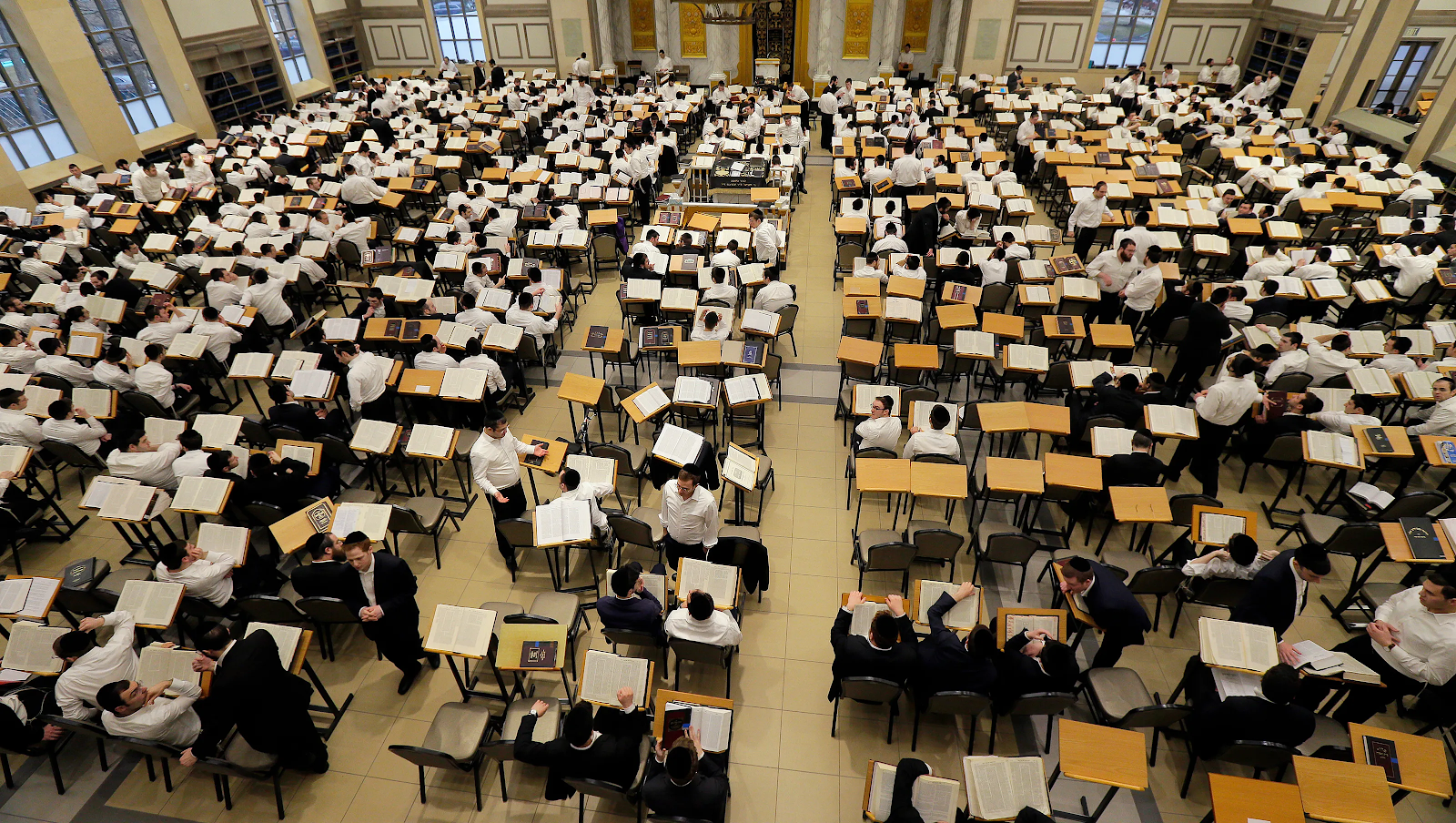 |
| Beth Medrash Govoha, the ultimate Charedi student's goal.(APP) |
The not so subtle message was that as important as Torah should be in his life, he should never the less get an good secular education beyond elementary school and even beyond what he will eventually get i high school. Implying the invaluable asset this would be to him in the future.
She was of course exactly right. The problem is that the school chosen for her son does not agree with her. That school places little if any value on the minimal secular studies curriculum they offer. Their emphasis is almost completely on Torah study. That was the message of the principal who spoke at his Bar Mitzvah. As an exceptionally bright young man they spoke about how fortunate his parents are to have a child with the potential to be a major Talmid Chacham if he perseveres. Strongly implying that he could best do so by not becoming distracted with other pursuits.
So little do they value their own secular curriculum that when I attended an 8th grade graduation a few years ago the general studies principal – who doubles as a 7th grade Rebbe didn’t mention a word about his primary job. He spoke only of the closeness he had with his students and their development in Torah studies. (This - from principal who is a Talmid Chacham and actually has a secular college degree - which he surely chose to pursue - L’Chatchila!)
What this boy’s mother doesn’t quite realize is how strongly that type of indoctrination is in the type of school she sends her son to. It’s not like that school keeps their Hashkafa secret. They openly model themselves after Lakewood types schools. Increasingly trying to become virtual clones of those schools. Something they are quite proud of. Even though many parents in that school do not fully subscribe to that philosophy.
Nonetheless, a lot parents choose a school like that because they believe they can moderate those views in the home. The problem is that more often than not - administration and Torah teachers spend a lot of time indoctrinating their students with a ‘Torah only’ Hashkafa to the exclusion of all else Doing it 24//7 all the way through 8th grade. And then even more intensely in high school. No amount of home influences are going to be able moderate that.
Not that there is anything wrong with a bright student becoming a Talmid Chacham. But when that is presented as the most valuable (by far) pursuit a Jew should have - that is what their students internalize
Every student is told that if they work hard enough they can become another Chazon Ish.
But not every student has that level of genius. Or perhaps more importantly their talents are better suited serving God in other ways. Pushing all of them in the same direction means that those talents will likely never reach their full potential. They might become very knowledge in their Torah studies. but never become the next Chazon Ish. And that results in a lot of mediocrity. And are otherwise ill equipped to develop their natural talents.
I’m sure the mother in this story feels the same way. Which is why she extolled the virtue of her son’s great-grandfather being a lawyer. When parents send their children to a school like that and expect a different product they will be disappointed when they don’t get it.
That being said, there is a lot of pride to be had by their son’s continued achievement in Torah study. That pride might make up for that disappointment. But then there is the ‘little’ matter of making sure their son and his eventual family don’t starve. That means offering financial support at some level.
For the typical large family that most Orthodox Jews have, that expense becomes almost impossible to pay without getting into serious hock (eg getting a 2nd mortgage, selling a life insurance policy, or working themselves to the bone well past the age of retirement. Or all of the above. Just so that they can keep their children afloat.
Now there are many parents that wish to do that. They agree with the Hashkafa of that school and are willing to make those sacrifices from the very beginning. But there are also more than a few parents that do not envision doing that - having expected to retire; enjoy their golden years - . and instead end up working hard to their dying days.
There is also another problem with sending a child to a school whose Hashkafa does not match theirs. When a child is taught one thing in school all day long 24/7 and then goes home and doesn’t see it there, they can easily end up with rebelling against it all.
Which is why I cannot stress enough the importance of sending your child to a school that – as closely as possible – matches what is learned in the home. Parents should as much as possible be the role models for what their schools teach. If a parent values secular studies at all, they darn well better send them to a school that values it too.
Unfortunately this advice seems to be increasingly be honored in the breach – believing that their own influence will combine with the school’s influence to produce the desired result.
But I don’t think that happens too often - if at all.